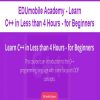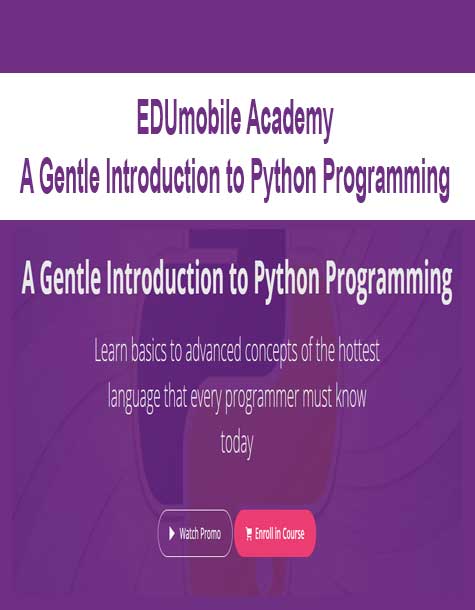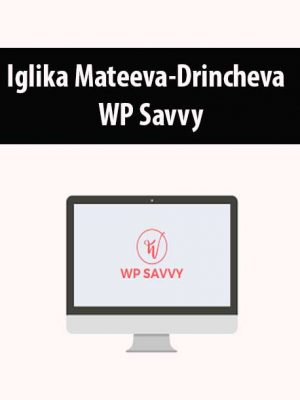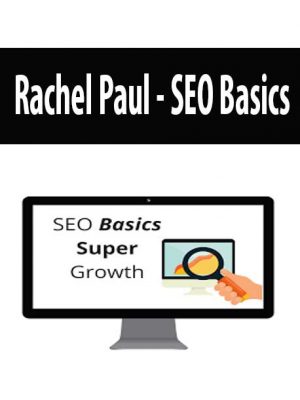EDUmobile Academy – A Gentle Introduction to Python Programming
$99.00 Original price was: $99.00.$29.00Current price is: $29.00.
Proof of item:
Python is a programming language that can be used for a wide variety of purposes, from simple user scripts to web servers and complex APIs. It has a simple, highly readable syntax which makes it a suitable language for people who want to learn how to write programs.
What you will learn
We will begin the course by installing the Python 3 interpreter. We will look at how to run the interpreter in the command line, as well as how to execute our Python source files.
After that, we will learn about how to manipulate some basic data types. We will learn about how use Python to do simple arithmetic. Then, we will learn about working with words and characters, using a data type known as the “string”. We will also cover the Boolean type, which is a representation of True and False inside of a programming language.
Then we will move on to more complex types. First we will look at how we can organize data into a list. We will look at how to create lists, how to access elements inside them, and how to modify the contents of a list. Then, we will look at the dictionary type, which allows us to create mappings. For example, a dictionary could map account numbers to client names.
We will then move on to control flow. Control flow refers to the sequence in which a program’s
statements are executed. We will look at the if statement, which allows the script to decide whether or not to execute a block of code based on some condition. We will also look at looping. Looping refers to repeatedly executing a block of code until some condition is met. Functions will also be covered, which will allow us to organize code into simple, reusable pieces. Then, we will learn about errors, and how to handle them properly so that they do not halt execution of the script.
Finally, we will end the course with three practical coding exercises. These exercises will ask for user input, validate the user input, and display a result in the command line. In cases of invalid input,meaningful error messages will always be displayed to the user. The first exercise will involve asking the user for the length, width and height for a rectangular box. The program will then calculate and display the box’s volume. The second exercise will calculate the sum of all multiples of a list of numbers up to 1000. The last exercise will ask the user for a length and a width, and display a multiplication table with the given dimensions.
Course Curriculum
-
Start
Introduction to Python (5:22)
-
Start
Course Overview (2:23)
-
Start
Setting up Python (5:02)
-
Start
Numbers (6:46)
-
Start
Variables and Order of Operation (8:14)
-
Start
Strings Part 1 (6:39)
-
Start
Strings Part 2 (7:26)
-
Start
String Method and Formatting Part 1 (7:10)
-
Start
String Method and Formatting Part 2 (6:38)
-
Start
Booleans (6:30)
-
Start
Tuples in Python (6:58)
-
Start
Lists in Python (6:56)
-
Start
Dictionaries in Python (8:08)
-
Start
Python Objects (9:45)
-
Start
Python if Statement Part 1 (6:22)
-
Start
Python if Statement Part 2 (5:50)
-
Start
for loop in Python (7:18)
-
Start
Python while loop (6:48)
-
Start
Functions in Python Part 1 (7:21)
-
Start
Functions in Python Part 2 (8:55)
-
Start
Exceptions in Python Part 1 (8:33)
-
Start
Exceptions in Python Part 2 (11:27)
-
Start
Volume Calculator in Python (13:10)
-
Start
Sum of Multiples in Python (14:18)
-
Start
Multiplication Table in Python (13:43)
Q & A
Ask a question
Your question will be answered by a store representative or other customers.
Thank you for the question!
Your question has been received and will be answered soon. Please do not submit the same question again.
Error
An error occurred when saving your question. Please report it to the website administrator. Additional information:
Add an answer
Thank you for the answer!
Your answer has been received and will be published soon. Please do not submit the same answer again.
Error
An error occurred when saving your answer. Please report it to the website administrator. Additional information:
Related products
Internet Marketing
Internet Marketing
Internet Marketing
Internet Marketing
Elena Mofar – CCNA 200-125 v3.0 (Cisco Certified Network Associate)
Internet Marketing
Internet Marketing
Internet Marketing
Internet Marketing














Rec’d promptly. Just what I wanted. Thank you. | EDUmobile Academy – A Gentle Introduction to Python Programming